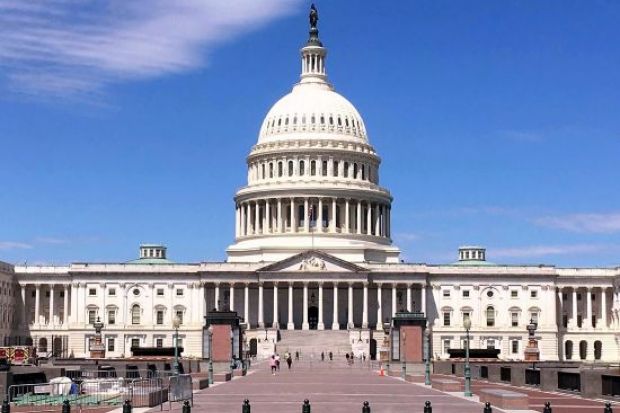US president Joe Biden has extended the federal pause on student loan repayments into the summer and waived any records of past defaults for borrowers, stoking an election-year showdown over college affordability.
The federal government stopped collecting payments on most student loans at the start of the pandemic in March 2020, so far saving some 40 million Americans more than $100 billion (£80 billion). The latest Biden extension pushes the benefit from the end of April to the end of August.
Mr Biden also declared that the approximately 7 million of those borrowers in default on their payments will be considered in good legal standing, ending the threat of legally enforced deductions from wages and assets.
The administration had said that an extension granted last August would be its final one, then said that the most recent one in December would give borrowers a little more time to plan for resumption of payments.
In this latest forbearance, the president cited another uptick in Covid cases and the nation’s economic sluggishness as reasons to extend again, amid expectations he will do it at least one more time to get past the congressional elections in November.
“If loan payments were to resume on schedule in May,” Mr Biden said in a statement, “analysis of recent data from the Federal Reserve suggests that millions of student loan borrowers would face significant economic hardship, and delinquencies and defaults could threaten Americans’ financial stability.”
The president’s long-running vacillation is seen as reflecting a combination of shifting political and economic pressures and predictions surrounding the cost of higher education, including Mr Biden’s unfulfilled 2020 campaign promise to cancel at least $10,000 per student borrower.
Congressional Republicans enjoy wide expectations of reclaiming control of Congress this fall, and they criticised Mr Biden for the ongoing repayment holiday, calling it another unwarranted gift to American elites who attended college at the expense of those who did not.
“Taxpayers have been footing the student loan bill for graduate students and Ivy League lawyers to the tune of $5 billion every month,” the top-ranking Republican on the House education committee, Representative Virginia Foxx, said in a statement. The forgiveness lacks “any basis other than the president’s sinking poll numbers,” she said.
The write-down of defaults, meanwhile, was done without consulting Congress on the implications, Representative Foxx said, suggesting that the move reflected either “sheer incompetence or an intentional ploy to set the table for widespread forgiveness.”
In fact, Mr Biden has faced sustained pressure from progressive members of his party to permanently wipe away all student debt – which totals an estimated $1.6 trillion, more than any category of borrowing other than home mortgages. There do not appear to be the votes in Congress to do that, and Mr Biden has declined to take that step unilaterally through executive order, even though he is generally understood to have that power.
He has, however, forgiven more than $17 billion owed by 700,000 borrowers in specific circumstances, such as disabilities and fraud by for-profit institutions.
Advocates for student borrowers cheered both of Mr Biden’s new steps, although with warnings that he needs to put clear plans in place to help the neediest borrowers cope with the resumption of payments if and when he ultimately allows the moratorium to expire.
“After more than two years without student loan payments,” said Karen McCarthy, vice-president of public policy and federal relations at the National Association of Student Financial Aid Administrators, “transitioning millions of borrowers back into repayment cannot happen at the drop of a hat.”
The administration has been working to revive income-based student loan repayment systems, and programmes of loan forgiveness for public-sector workers, that were established by Congress but largely left inoperative during the Trump administration.
Those efforts must be completed, said Sameer Gadkaree, president of the Institute for College Access and Success, so that borrowers do not immediately find themselves back in conditions of delinquency or default.




